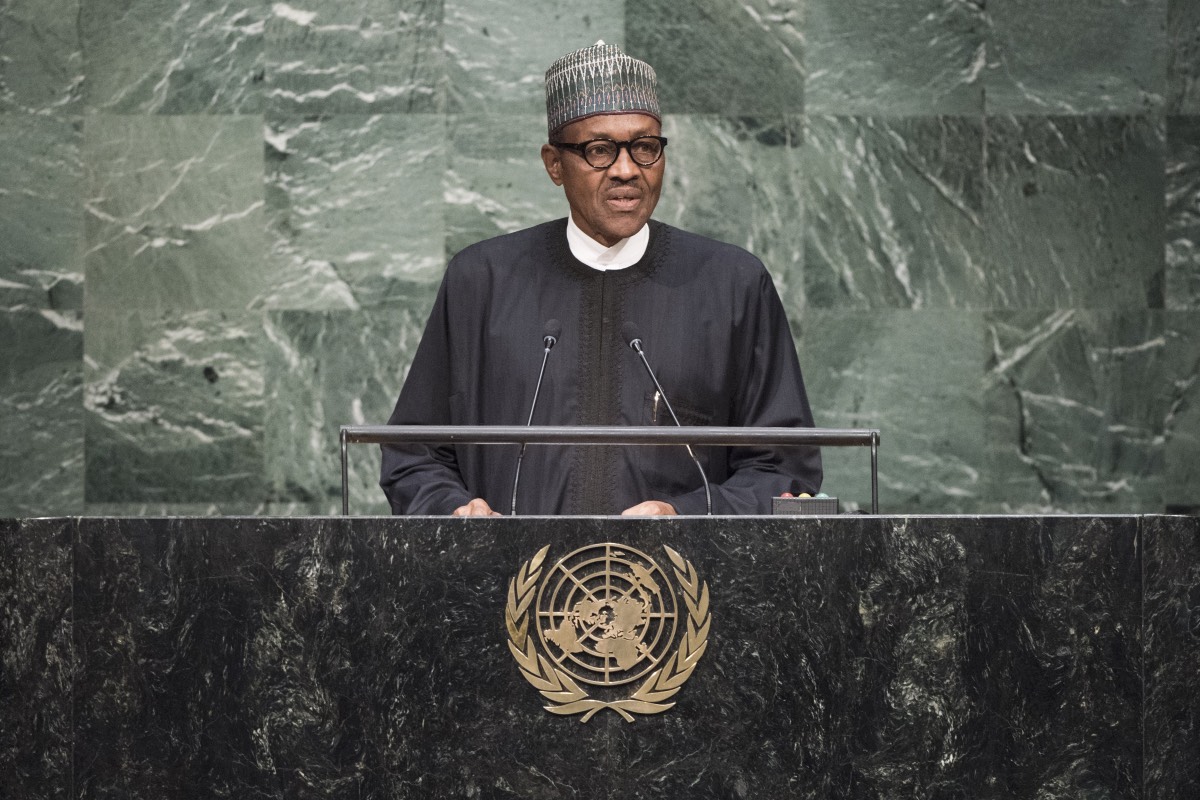
The Muhammadu Buhari administration has decided to withdraw from 90 out of the 310 international organizations to which Nigeria belongs.
Kemi Adeosun, the minister of finance, disclosed this to State House correspondents on Wednesday, September 27, 2017 after the Federal Executive Council meeting presided over by President Muhammadu Buhari.
Adeosun put Nigeria’s annual commitment to all the international organizations at $70 million.
The minister said the country was currently indebted to all the organisations to the tune of $200 million.
She explained that the decision to withdraw from 90 of such organisations was aimed at cutting cost.
She, however, did not name the organizations the nation was withdrawing from.
Under President Buhari, Nigeria’s foreign relations has taken a turn for the worse and the country is fast heading to the status of a pariah nation.
In November, 2015, Nigeria voted against the protection of human rights defenders, joining dictatorships like North Korea and Iran in opposing a resolution that expands protections of individual rights and freedoms.
Again in July 2016, Nigeria voted against the adoption of a United Nations Human Rights Council, HRC, resolution committing States to protect civil society space, and a resolution renewing the mandate of the UN Special Rapporteur on the freedom of peaceful assembly and of association for three more years.
The resolution commits states to create and maintain a safe and enabling environment for civil society.
“At a time when governments and non-state actors are actively suppressing civil society voices, this resolution by the world’s premier human rights body articulates key steps to protect and promote civil society rights,” said Dr Danny Sriskandarajah, secretary general of Civic Space Initiative, said at the time.
244 civil society organisations jointly called for the rejection of amendments led by Russia, China and South Africa to attack the heart of the resolution. Though these amendments failed, Russia was joined by HRC member states China, Congo, Cuba, Nigeria, South Africa, and Venezuela in voting against the civil society space resolution as a whole. Nine states abstained on the vote.
“We regret that democracies such as Nigeria and South Africa voted against civil society space at the UN, giving cover to authoritarian governments that routinely repress the rights to freedom of expression, association and assembly“, said Thomas Hughes, executive director of ARTICLE 19.
This trend coincided with the assumption of General Muhammadu Buhari, a former brutal military leader who was declared winner of the 2015 elections. The election was marked by widespread irregularities.







![Canadian Senate Commends Burna Boy, Notes Grammy Winner’s Sold Out Shows [WATCH] entertainment activities Nigerian Singer Burna Boy](https://www.thetrentonline.com/wp-content/uploads/2019/11/https___cdn.cnn_.com_cnnnext_dam_assets_191001102612-burna-boy-at-coachella.jpg)




Ever getting more interesting; seemingly, Mohammadu Buhari will soon pull his Nigeria out of the Nigerian Enclave, as well as withdraw its membership of the United Nations in its entirety, only to remain a member of the Organization of Islamic Cooperation (OIC).
All in the disguise of cutting costs, even as he claims that the economy has improved, probably to be able to pay his annual medical holiday bills.
It has not started, be ready for more to come!